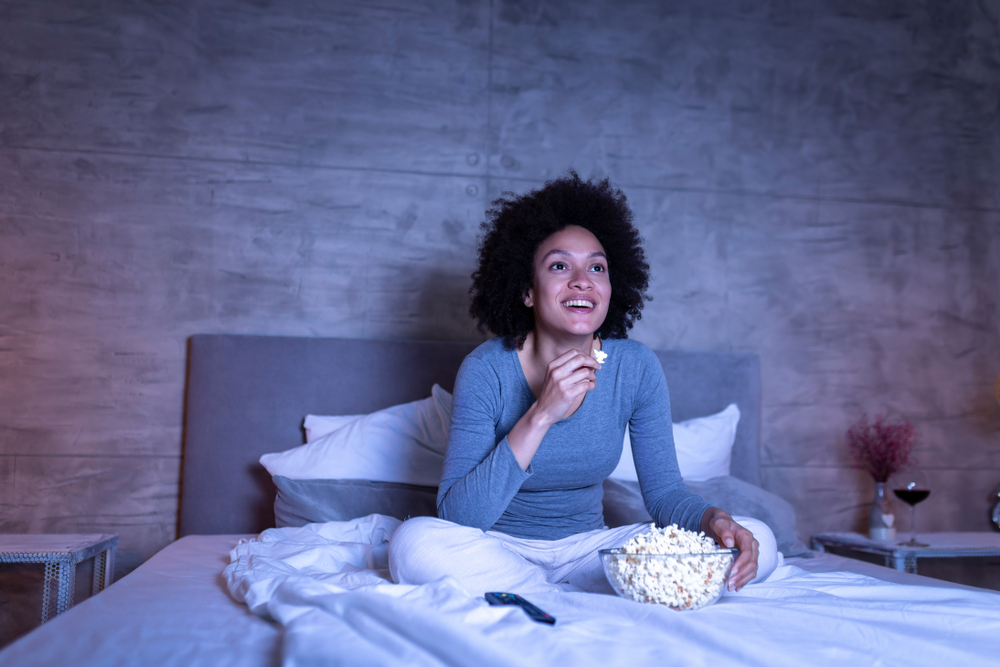Have you ever found yourself munching on a handful of grapes as the clock strikes midnight? Well, let me tell you, you’re not alone. Many people wonder if it’s bad to eat grapes before bed, and honestly, it’s a question worth exploring. Grapes might seem innocent enough, but their effects on your body during those late-night hours can be a bit of a mystery. So, buckle up because we’re diving deep into the world of grapes and bedtime munchies.
Before we get into the nitty-gritty, let’s address the elephant in the room: why do we snack before bed anyway? Sometimes it’s stress, sometimes it’s boredom, and sometimes it’s just pure hunger. Whatever the reason, grapes are one of those snacks that seem healthy enough, right? But here’s the thing—healthy doesn’t always mean bedtime-friendly. Keep reading, and we’ll break it all down for you.
Now, don’t get me wrong. Grapes are packed with goodness, from antioxidants to vitamins. But when it comes to eating them before bed, there are a few things you need to consider. Stick around, and we’ll give you the full scoop on whether or not grapes are the enemy of a good night’s sleep. Spoiler alert: the answer might surprise you.
Why Do People Snack Before Bed?
Let’s take a step back and talk about why so many of us reach for snacks when the sun goes down. It’s not just about hunger—it’s often a mix of emotions, habits, and even biology. Some nights, you might feel like you’re starving, while other times, it’s more about comfort. Whatever the reason, snacking before bed is a common habit, and grapes often make the list of go-to snacks.
Here’s the deal: late-night snacking isn’t inherently bad, but it depends on what you’re eating and how much. Grapes, for example, are low in calories and full of water, which makes them a better choice than, say, a bag of chips. But the timing and quantity matter, and we’ll dive deeper into that later. For now, just know that understanding your late-night cravings is the first step toward making smarter choices.
Understanding the Nutritional Value of Grapes
Before we judge grapes too harshly, let’s give credit where it’s due. Grapes are nutritional powerhouses, loaded with vitamins C and K, potassium, and antioxidants. They’re also hydrating, thanks to their high water content. In fact, a cup of grapes only has about 100 calories, making them a pretty guilt-free snack.
But here’s the catch: while grapes are healthy, they’re also high in natural sugars. A single cup can contain around 15 grams of sugar, which might not seem like much until you start munching on more than one serving. And let’s be real—once you start, it’s hard to stop. So, while grapes are nutritious, they’re not exactly a low-sugar option, and that’s something to keep in mind when you’re snacking before bed.
The Role of Sugar in Sleep
Speaking of sugar, let’s talk about how it affects your sleep. Consuming sugary foods before bed can lead to blood sugar spikes and crashes, which can disrupt your sleep cycle. When your blood sugar drops, your body releases cortisol, a stress hormone that can make it harder to fall asleep and stay asleep.
Grapes, with their natural sugar content, might not be the best choice if you’re sensitive to blood sugar fluctuations. But here’s the good news: the fiber in grapes can help slow down the absorption of sugar, which might mitigate some of those effects. Still, moderation is key, and we’ll cover that in more detail later.
Does Eating Grapes Before Bed Affect Sleep Quality?
Now, let’s get to the heart of the matter: does eating grapes before bed actually affect your sleep? The answer is a bit complicated. On one hand, grapes contain melatonin, a hormone that regulates sleep-wake cycles. Some studies even suggest that eating grapes might help improve sleep quality because of their melatonin content.
On the other hand, the sugar in grapes could potentially disrupt your sleep, especially if you eat a large amount. It’s all about balance. For most people, a small serving of grapes before bed won’t cause any issues, but if you’re someone who struggles with sleep, it might be worth experimenting with different snacks to see what works best for you.
How Much Is Too Much?
When it comes to grapes, portion control is everything. A single serving of grapes is about one cup, which translates to roughly 15-20 grapes. If you stick to that amount, you’re probably good to go. But if you find yourself devouring half a bunch, you might want to reconsider.
Here’s a tip: try pairing grapes with a source of protein or healthy fat, like a handful of nuts or some Greek yogurt. This can help stabilize your blood sugar and keep you feeling full longer, reducing the temptation to overeat. Plus, it adds an extra layer of nutrition to your snack.
Health Benefits of Grapes
Let’s not forget the many health benefits of grapes. These little fruits are packed with antioxidants, which help fight inflammation and protect your cells from damage. They’re also linked to improved heart health, better brain function, and even a reduced risk of certain cancers.
But here’s the kicker: most of these benefits come from eating grapes as part of a balanced diet, not as a late-night snack. If you’re eating grapes before bed, make sure you’re not overdoing it, or you might miss out on some of those health perks. Remember, moderation is key.
Are All Grapes Created Equal?
Not all grapes are the same, and the type of grape you choose can make a difference. Red and purple grapes, for example, are higher in antioxidants than green grapes. They also contain resveratrol, a compound that’s been linked to numerous health benefits, including improved heart health and anti-aging effects.
So, if you’re snacking on grapes before bed, consider opting for red or purple varieties. Not only do they pack more nutritional punch, but they might also help you sleep better thanks to their melatonin content. Just don’t go overboard—moderation is still the name of the game.
Alternatives to Grapes Before Bed
Let’s say you’ve decided that grapes aren’t the best bedtime snack for you. No worries! There are plenty of other options that are both healthy and sleep-friendly. Here are a few ideas:
- Cherry juice: Like grapes, cherries contain melatonin and might help improve sleep quality.
- Almonds: These nuts are rich in magnesium, a mineral that promotes relaxation and better sleep.
- Warm milk: Milk contains tryptophan, an amino acid that can help you feel sleepy.
- Bananas: Bananas are a good source of potassium and magnesium, both of which can help you relax.
Of course, everyone’s body is different, so it’s important to experiment and find what works best for you. Just remember to keep portion sizes in check and avoid anything too heavy or sugary.
Why Grapes Might Still Be a Good Choice
Even with all the alternatives out there, grapes can still be a great bedtime snack for many people. They’re hydrating, low in calories, and packed with nutrients. Plus, their natural melatonin content might even give you a sleep boost. The key is to eat them in moderation and pair them with other healthy foods when possible.
That being said, if you notice that eating grapes before bed makes it harder for you to sleep, it might be worth cutting back or switching to a different snack. Listening to your body is always the best approach.
Tips for Healthy Late-Night Snacking
If you’re going to snack before bed, here are a few tips to make it healthier:
- Stick to small portions—think a handful, not a whole bowl.
- Choose snacks that are high in protein or healthy fats, like nuts or yogurt.
- Avoid sugary or processed snacks, which can disrupt your sleep.
- Stay hydrated—sometimes thirst masquerades as hunger.
- Try to eat at least an hour before bed to give your body time to digest.
By following these tips, you can enjoy a healthy snack before bed without sacrificing your sleep quality. And hey, if grapes are your go-to, there’s no reason to give them up entirely—just be mindful of how much you’re eating.
How to Incorporate Grapes Into Your Diet
If you’re a grape lover, there are plenty of ways to enjoy them beyond just snacking. Here are a few ideas:
- Add them to salads for a sweet and tangy twist.
- Freeze them for a refreshing, icy treat.
- Mix them into yogurt or oatmeal for breakfast.
- Pair them with cheese for a gourmet snack.
By incorporating grapes into your meals and snacks throughout the day, you can enjoy their nutritional benefits without relying on them as a late-night snack.
Conclusion
So, is it bad to eat grapes before bed? The answer, as you’ve probably guessed, is “it depends.” For most people, a small serving of grapes won’t cause any issues and might even help improve sleep thanks to their melatonin content. But if you’re sensitive to sugar or struggle with sleep, it might be worth reconsidering or limiting your intake.
The key takeaway here is moderation. Grapes are a healthy, delicious snack, but like anything else, they should be enjoyed in balance. And if you’re looking for other bedtime snack options, don’t be afraid to experiment until you find what works best for you.
Now, here’s your call to action: leave a comment below and let us know what your favorite bedtime snack is. Are you a grape lover, or do you prefer something else? And don’t forget to share this article with your friends—they might be wondering the same thing!
Table of Contents
- Why Do People Snack Before Bed?
- Understanding the Nutritional Value of Grapes
- The Role of Sugar in Sleep
- Does Eating Grapes Before Bed Affect Sleep Quality?
- How Much Is Too Much?
- Health Benefits of Grapes
- Are All Grapes Created Equal?
- Alternatives to Grapes Before Bed
- Why Grapes Might Still Be a Good Choice
- Tips for Healthy Late-Night Snacking


